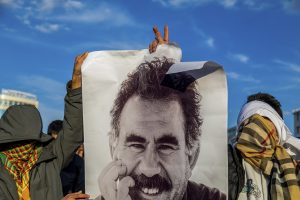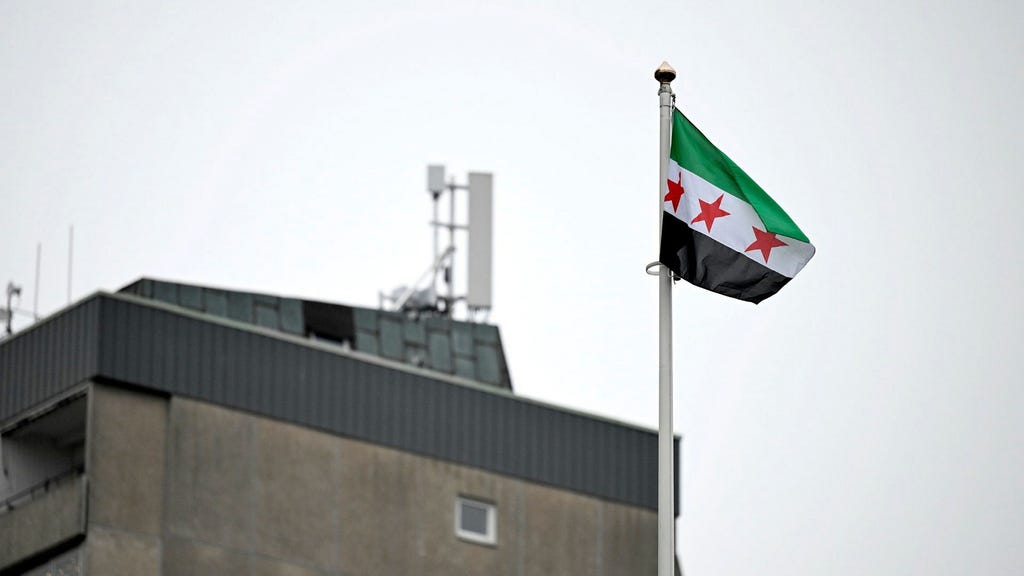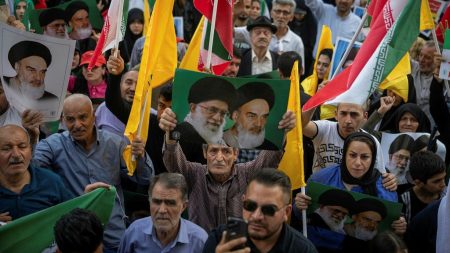The fall of Bashar al-Assad’s regime sent shockwaves across the globe, prompting immediate and symbolic changes at Syrian embassies worldwide. One such transformation took place at the Syrian embassy in Stockholm, Sweden, where the regime’s flag was swiftly replaced with the revolutionary flag, a powerful emblem of the opposition’s struggle. This act signified the embassy’s allegiance to the new Syria, ushering in an era of hope and change. Ehab Al Yousef, the chargé d’affaires and highest-ranking official at the embassy, expressed the significance of the green in the new flag, symbolizing spring, goodness, and the anticipated reign of justice and the eradication of sectarianism in Syria.
The embassy’s break from the Assad regime began even before the dictator’s exile. With opposition forces gaining control of Aleppo, communication with Damascus had all but ceased. The embassy staff were preparing to declare their independence from the regime when news of Assad’s flight stunned them. The planned declaration became unnecessary, replaced by the immediate removal of Assad’s portraits and the regime’s flag, and the hoisting of the revolutionary flag, procured from a Syrian supporter in Stockholm. This swift action, occurring overnight amidst the regime’s collapse, underscored the embassy’s commitment to the burgeoning new Syria.
The embassy in Stockholm serves Syrians across several Northern European countries. While acknowledging the lack of direct contact with the new Syrian foreign ministry since Assad’s departure, Al Yousef emphasized the embassy’s continued operation based on a Facebook post from the ministry urging embassies to maintain their work. He corrected a reporter who referred to the new leadership as the ”opposition,” firmly stating they were the new state of Syria. The embassy continued its daily operations, safeguarding official documents, and operating without additional security, confident in their safety.
Al Yousef, a Damascus native who began his diplomatic career in 2007, has served in various countries before becoming chargé d’affaires in Stockholm in 2020. He resides in Stockholm with his wife and two children. His last visit to Damascus was less than two years prior. Faced with the destruction of the migration and passport authority building in Damascus, Al Yousef implemented a temporary solution: extending expired Syrian passports for six months using special stickers. However, he advised Syrians in Sweden against submitting new passport applications unless absolutely necessary, anticipating future fee reductions.
The embassy is undergoing a dramatic transformation, aiming to become a ”place worthy of the people.” Al Yousef stressed the new strategy, emphasizing that state institutions belong to the Syrian people. He declared the end of the era of statues and tyranny, proclaiming that Syria is no longer Assad’s Syria, but simply Syria. His message to Syrians in Sweden and the Nordic region was one of hope and homecoming. He invited them, along with their children born in their new homelands, to visit the embassy, now their house, and connect with their Syrian heritage. He poignantly reminded them that the one who once labeled them ”bacteria” is now a refugee himself.
While the embassy embraces a new era, the future political landscape of Syria remains uncertain. Hayat Tahrir al-Sham (HTS), a U.S.-designated terrorist organization with past ties to al-Qaeda, is expected to play a significant role in forming a transitional government. Led by Abu Mohammed al-Jawlani, this Islamist group’s influence raises concerns about the future direction of the country. Mohammed al-Bashir, who has served as a quasi-prime minister for an Islamist regime in northwestern Syria since January, is anticipated to be the public face of this new government. This development adds complexity to the transition, and its implications for Syria and the international community are yet to be fully understood.














